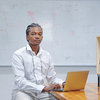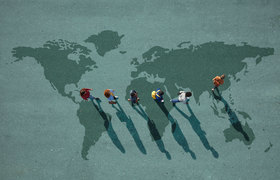Three UCT students showcase scientific solutions in Geneva
08 November 2022 | Story Wendyl Martin. Photos Supplied. Read time 9 min.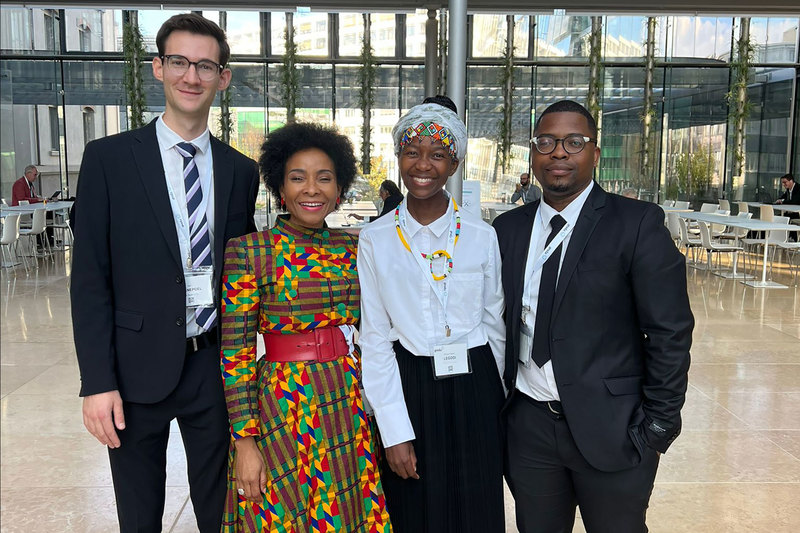
They went to shine, and shine they did. Applying predictions of the science of the future to find solutions to present challenges, meeting young minds from across the world, networking with innovation leaders and enablers – these are some of the things three University of Cape Town (UCT) students and alumni achieved while attending the Geneva Science and Diplomacy Anticipator (GESDA) Science & Diplomacy Anticipation Summit in Switzerland from 12 to 14 October.
Bekithemba Ntoni, an international relations master’s student; Rejoyce Kgabo Legodi, a film and media studies student; and Niel Swanepoel, who completed a political communication honours degree at UCT last year, were selected to travel to Geneva based on their submissions of applying the thinking of the GESDA 2021 Science Breakthrough Radar, which provides breakthrough predictions at five, 10 and 25 years in the future.
They attended the three-day event with UCT Vice-Chancellor and GESDA board member Professor Mamokgethi Phakeng, who in July this year hosted a weekly online discussion series at the invitation of GESDA, themed “Use the science of the future to shape your present”.
“The GESDA weekly discussion series in July aimed to inspire African youth to have a conversation on how we can use the science of the future to shape our present.”
“The GESDA weekly discussion series in July aimed to inspire African youth to have a conversation on how we can use the science of the future to shape our present,” said Professor Phakeng. “Through their participation in the competition and then later the summit, our three finalists were able to demonstrate their application of science to solve global and African problems. The GESDA Summit presented an opportunity for our finalists to network and engage with academics, diplomats, industry and political leaders from across the globe – and they grabbed it.
“I hope the summit kickstarts further opportunities for the three finalists, and that participants from across the globe gained from meeting young African thinkers. I believe that UCT’s partnership with GESDA continues to encourage scientific solutions for a better life.”
Working the room
Ntoni, Legodi and Swanepoel have used the opportunity to its fullest. They have touched down back home, having gained a wealth of knowledge about applying science and innovation, and inspired and ready to better our future.
Ntoni was selected to take part in a panel discussion titled “A Youth Outlook on GESDA and the Horizon of Science & Diplomacy” together with young representatives from other continents. For the initial competition that took him to the summit, he submitted an entry that looked at how outer space resources, such as Low Earth Orbit and Geosynchronous Earth Orbit satellites could be used to monitor geological and climate events. In his time at the summit, he picked brains, soundboarded his ideas with people and cemented contacts for collaboration.
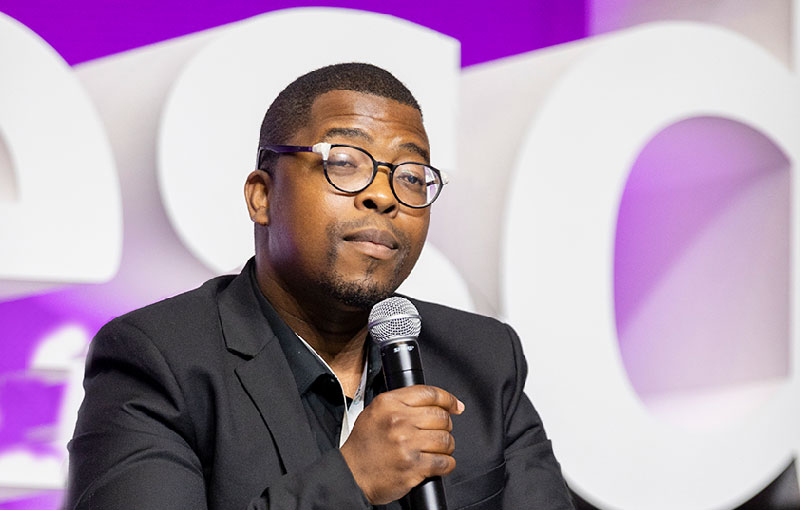
“Through the diverse sessions that discussed some of the cutting-edge and state-of-the-art technological scientific development, I had a chance to engage with some of the scientists that are [at] the forefront of these developments. It was great hearing from the people in the labs developing the next generation of contraptions that will modernise our future. Some of them offered their personal details if we had any questions or wanted to pursue research within their institutions. It was a great educational and networking experience,” said Ntoni.
“The conference definitely helped me meet people in my field and has also introduced new friends in my life that have a shared vision as mine, which has facilitated an opportunity to collaborate with them.”
Legodi used the opportunity to share more about the concept she entered the competition with: developing biogas – a renewable natural gas – from cow dung and manure.
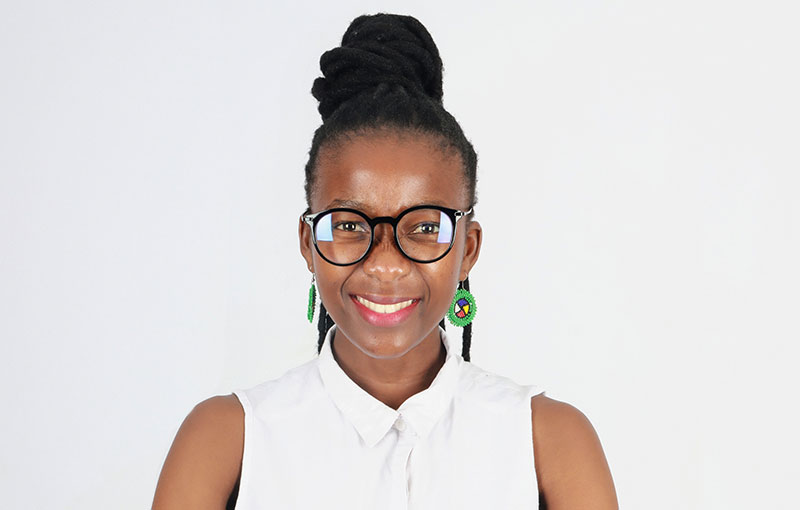
“I had so many opportunities to mingle, engage and share my innovative energy idea to various people. It was a relatable idea to some, and it was amazing to learn about other ideas,” said Legodi.
“As I am tapping into climate change spaces, there was an interesting presentation on decarbonisation – the reduction of carbon dioxide emissions through the use of low-carbon power sources, thus achieving a lower output of greenhouse gasses into the atmosphere. It is something I want to promote in South Africa and build a healthy sustainable world for us all,” she added.
Swanepoel said he was able to share his opinions on the developmental opportunities of technology and discuss the ideas from his entry on African data privacy framework with people who worked in policy and in scientific fields.
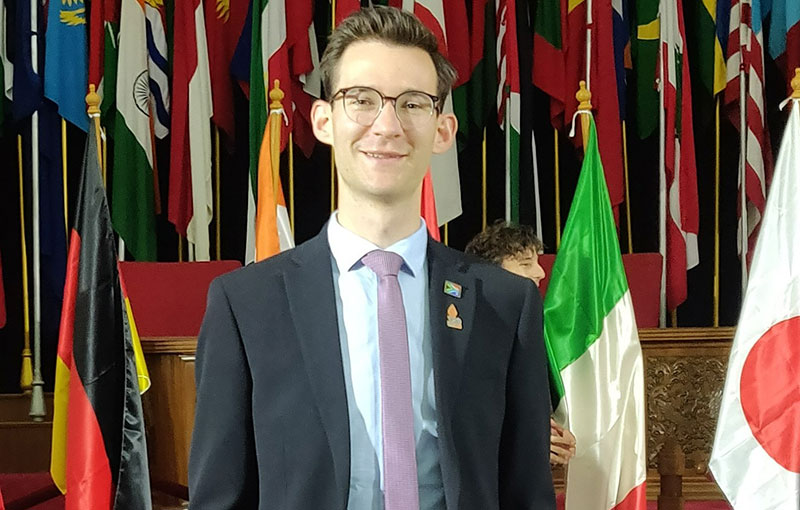
“It was at the intermissions or networking breaks that you get to engage with people individually, share your ideas and exchange contact information. The contacts I made exceeded my expectations of the summit ... It’s still early days but I have made some promising connections related to my interest in tech-enabled development in Africa. I’m in touch with the Human Technology Foundation in Paris, France, who are doing really interesting research and advocacy work related to situating people at the heart of technology development and policymaking. I also met some influential people that can help further my projects on youth advocacy, especially with how they relate to science diplomacy,” said Swanepoel.
Geneva waits for you
All conference and no play would have proved a dull experience. The trio couldn’t leave Geneva without sampling what the city had to offer besides a global science summit. Legodi said that on their arrival, they had a boat ride on Lake Geneva and that later in their stay, they had time to wander the city streets.
Ntoni said: “The city is really well integrated so it’s easy to travel and see different neighbourhoods and communities. I went to the science museum that is well housed within the botanical gardens along Lake Geneva. I also went to the Geneva Institute for International Relations where I enquired about their postgraduate programmes.”
Swanepoel said: “I had a tour of the United Nations, CERN [the European Organization for Nuclear Research] and the Red Cross, all of which were really stunning and leaves one with a renewed hope in the commitment people have in the improvement and advancement of human peace, dignity and knowledge.”
GESDA–UCT partnership set to expand
Dr Marga Gual Soler, the head of Science Diplomacy Capacity Building at GESDA, described the three UCT finalists as incredible.
“We appreciated their insights, thoughtful questions, reflections and sometimes challenges to the debates and discussions on the future of science and diplomacy. Including youth perspectives in these dialogues and debates is a matter of intergenerational justice – young people must be involved in shaping how science should be used to affect their futures. We hope this was a rewarding personal and professional experience and they were able to expand their networks and perspectives, and we look forward to continuing to support them as they move forward in their career paths,” said Dr Soler.
More partnership can be expected from GESDA, with plans for a live event in Cape Town in December 2022.
“We are excited to expand the partnership with UCT to bring the Youth and Anticipation Initiative to Africa in 2023. As the next step, in December South Africa will host the World Science Forum in Cape Town and we are planning a live event hosted by Professor Phakeng featuring the competition finalists and several experts on the GESDA Breakthrough Radar,” added Soler.
 This work is licensed under a Creative Commons Attribution-NoDerivatives 4.0 International License.
This work is licensed under a Creative Commons Attribution-NoDerivatives 4.0 International License.
Please view the republishing articles page for more information.


